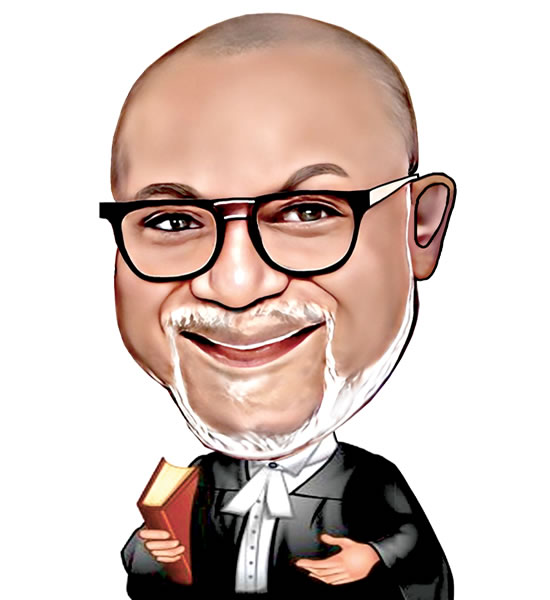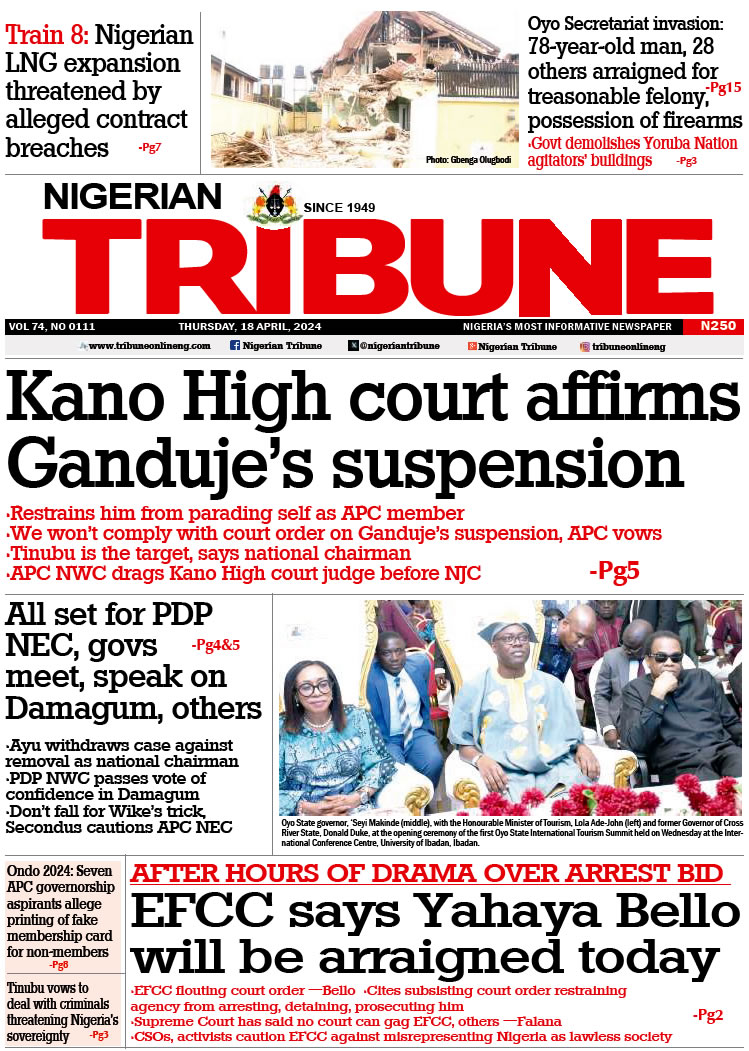IN July 1966, a band of disgruntled North-born members of the Nigerian military staged a counter-coup, cutting down Nigeria’s first military Head of State, Major- General Johnson Aguiyi-Ironsi and his host in Ibadan, Lt Colonel Adekunle Fajuyi. Their grouse, quite apart from the killing of northern political and military leaders during the military putsch of January 15, 1966 led by officers of southern origin, was the late leader Ironside’s reversal of Nigeria’s federal framework through the Unification Decree. The grumbling was not without ground: the founding fathers and mothers of the “mere geographical expression” called Nigeria had intended each region of the disparate entities cobbled together by British hegemonists to grow at its own pace and according to its cultural dictates. They were federalists par excellence, and the mutineers desperately sought to protect that heritage.
Today, with the ravages of decades of military rule that turned the federalists into avid unificationists, Nigeria has a behemoth centre arrogating to itself the sole right to the repressive apparatuses of the state, talking down on the supposed federating units, and commandeering the national purse. The results, to take only the latest verdicts by statistical agencies for instance, have been horrific: the global and international terrorism research/analysis group, Jihad Analytics, has just ranked the unitarily policed Nigeria as the second most terrorised country in the world, behind Iraq which occupies the top spot with 337 recorded terrorists attacks between January and June this year, as against Nigeria’s 305. Nigeria, for good measure, is the global capital of poverty, of open defecation, of poor electricity access, and of out-of-school children. There is simply no logic to a unitary Nigeria.
And so when Rotimi Akeredolu (SAN), governor of Nigeria’s Sunshine State, takes on the lords of federal power, he does so looking back at the articles and the terms of Nigeria’s Independence formation; he does so cognizant of, among other landmarks, the 1963 Constitution, a constitution which sought to entrench federalism as Nigeria’s pathway forward. Even the most ardent critics know that the Grand Patron of the National Drug Law Enforcement Agency (NDLEA), who is open to the global trend in economic exploitation of the drug for medical and other uses, means what he says and says what he means.
Akeredolu’s quest is, to quote the American poet Robert Frost, about “the road not taken” which, in this case, is the projected pathway to contentment, if not outright joy, by peoples of diverse histories and traditions dumped into a unitary matrix, struggling to make sense of their new environment, and inevitably distrustful of one another. In erudition rich, in law astoundingly grounded, in logic solid and in passion for security and safety uncompromising, Akeredolu straddles the public landscape with the aura of a people’s General confident in the courage of his convictions. He is a member of the ruling All Progressives Congress (APC) but, along the cline of Rene Descartes methodological scepticism (“Can my senses deceive me?”) and Jacques Derrida’s deconstruction, he leaves the party open to interrogation and even censure, placing patriotism above partisanship, a temperament forged in the crucible of legal and human rights struggles.
The elected Vice President (1975/76) of the prestigious University of Ife (now Obafemi Awolowo University), Aketi, as the Ondo governor is called by admirers, was credited with helping “to engineer a leadership focused on issues, robust debates and constructive engagements,” and encouraging “a genuine mobilization of mass consciousness against inequality, injustice, corruption, arbitrariness and recklessness.” At such a young age, to quote the Bard of Avon in Much Ado About Nothing, it may have been justly said of him that “he hath borne himself beyond the promise of his age, doing, in the figure of a lamb, the feats of a lion.”
On different seats, whether as Attorney General of Ondo State, Chairman of the Legal Aid Council, Chairman of the South-West Governors Forum or as Patron of the Breast Cancer Association of Nigeria (BRECAN), Akeredolu has sought to leave lasting legacies. He was among the vocal voices critiquing the then President Umaru Yar’Adua’s refusal to hand over to Vice-President Goodluck Jonathan in acting capacity during his illness, and in naming its Abuja secretariat after him in 2012, the Nigerian Bar Association lauded his sheer courage “to go through the rigour,” which it called “a testimony to his selfless service.”
But it is perhaps in his present struggles for a truly federalised Nigeria that his impact has been mostly felt. Only recently, and to widespread acclaim, he expressed his commitment to properly equipping the Western Nigeria Security Network (Amotekun) to secure the lives and properties of the people of the region. His argument: “For centuries, we have been admonished that a bad workman blames his tools. In the case of Amotekun Corps, the workman is expected to function without good tools. It is not only absurd, but also a dereliction of duty and a cause of disaffection.” It’s a no-brainer that confronting terrorists armed to the teeth—and on record as bringing down even Air Force fighter jets— with cudgels is an open invitation to death.
When, following the formation of Amotekun, the Minister of Justice and Attorney General of Justice, Abubakar Malami (SAN), claimed that it lacked legal basis, it was Akeredolu who quickly pointed out that “laws are not made in the AGF’s office.” And Akeredolu it was again whom the nation sided with when the Federal Government, always eager to make a case for killer herders, faulted his directive to the merchants of death and devastation to exit Ondo’s forest reserves. In May 2021, Akeredolu also tackled the AGF over his comment that the decision by southern governors to ban open grazing was unconstitutional. His words, unimpeachable in their poetic quality: “Clinging to an anachronistic model of animal husbandry, which is evidently injurious to the harmonious relationship between the herders and the farmers as well as the local populace, is wicked and arrogant. Comparing this anachronism, which has led to loss of lives, farmlands and property, and engendered untold hardship on the host communities, with buying and selling of auto parts is not only strange. It, annoyingly, betrays a terrible mindset.”
In June this year, the AGF, who seems to take great joy in opposing anything that the Ondo helmsman has to say, again stoked controversy while delivering his keynote address at the meeting of Attorneys-General of Nigeria’s 36 States in Lagos. Malami, Abuja’s opposition to Nigeria’s restructuring in his mind, wondered whether “a state governor that colonised the resources of a local government, that renders a local government inefficient and ineffective in the performance of its duties, security and otherwise has a moral standing to now clamour and crave for restructuring against the backdrop of the inherent abuse associated with his conduct, with particular regard to the corporate existence of a state.” There you have it: you cannot return Nigeria to the terms of its formation because some governors are power-drunk. There is the legislature (via impeachment, etc) civil society, social media, the press and the courts to address the question of power-drunkenness, but the federalists of yesteryears cannot avoid placing incidental issues over fundamental ones. And what did Aketi say: “We will carry arms very soon. Oga Malami. There is no other way.” The argument: “The current spate of insecurity in the country leaves us with no room for equivocation on the right of the states to maintain law and order through the establishment of state police.” This is precisely the official position of the National Assembly, the vehicle through state policing is expected to come.
Amotekun, a regional policing outfit created by law, has been hamstrung in discharging its constitutional duties: it has had to confront maniacal killers, who have given Nigeria a top spot on the Global Terrorism Index, with dane guns. It has intercepted arms placed under fodder in trucks by terrorists masquerading as innocent citizens in transit. It has busted highway robbers and taken the battle to kidnappers, armed only with sticks and dane guns. Abuja, battling with allegations of ethnic insensitivity and condonation of the traders in blood, has resisted the quest for proper equipment of Amotekun and similar formations, but videos emerged recently showing vigilante members in President Muhammadu Buhari’s home state of Katsina wielding AK-47 rifles and singing songs of war. And the Sunshine State governor reacted: “We believe in one Nigeria, but we cannot have one country, two systems…The video making the rounds showing the equivalent of the Western Nigeria Security Network (Amotekun Corps) in Katsina, obtaining the approval of the Federal Government to bear arms is fraught with great dangers.” And typically, Abuja replied, acting as the spokesman for the Katsina State government: no state has authority to bear arms.”
Naturally, like all mortals, Aketi has not escaped his fair share of human foibles and failures. He apparently loves music but sometimes when he sings, he forgets that he is no longer a boy—he took to the bandstands, singing some naughty tunes to mark Professor Wole Soyinka’s 85th birthday at the Dome, Akure, in October 2019, a pretty odd step for someone whose ambition when he leaves office is to become a Gospel singer—and his reported club, Arsenal, are not in the Champions League. But on the home front, he is setting up a sea port projected to serve not only Nigeria but the West African subregion. And that’s a champion move.
ALSO READ FROM NIGERIAN TRIBUNE



